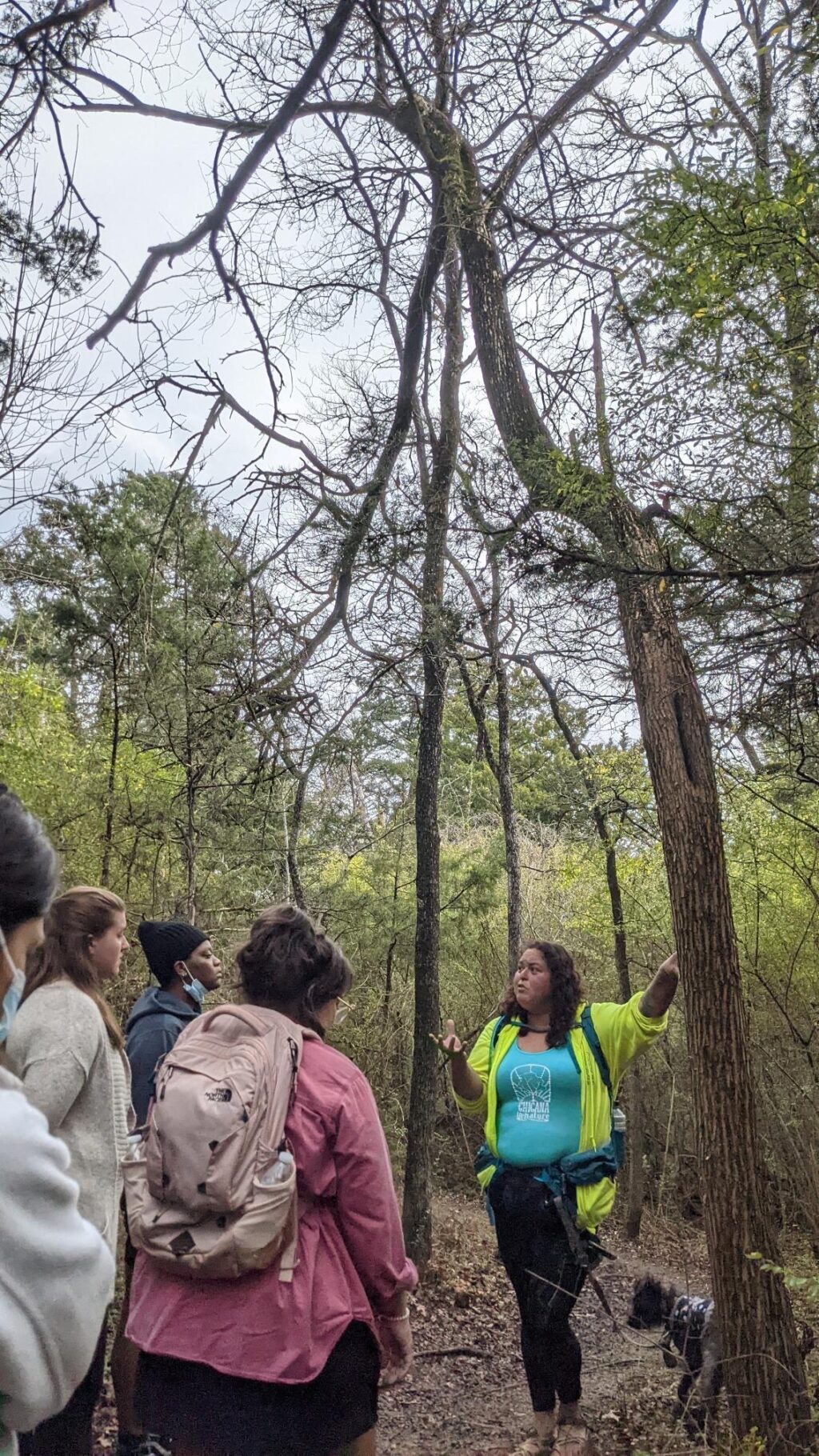
The place of nature, even in our world today, cannot be overemphasized. For instance, Kilroy J. Oldster, in his Dead Toad Scrolls, affirms that “spending time in nature assists a person to reconnect with his or her inner state. A wounded mind undoubtedly benefits by bowing down and taking communion beside the healing waters of a river.”
However, as beneficial as nature is, reports indicate that the BIPOC communities are grossly underrepresented in nature-related activities such as camping, visiting parks, and hiking. And similarly, they are most likely deprived of the benefits nature offers. The question therefore is, is anyone doing anything about reconnecting the BIPOC world with nature? Meet Susana Cruz.
Susana Cruz was born in Oak Cliff, to parents who weren’t keen to outdoor activities, just like many other families in her local community. However, since Susana’s mother is from Zacatecas, North Central Mexico, Susana got to travel to Mexico with her family during the summers and those journeys made a life-long difference for her.
Her family in Mexico was into agriculture, raising goats and other outdoor activities. So, she was fond of staying outside, playing around and getting connected with nature. But this childhood interest blossomed into something much more. Susana’s passion for nature also became distinct much later at the camps where she worked; first, the day camps and, more extensively, the residential camps. She explained, “I was in Missouri working at a camp, 2005 to 2006. I finally left Missouri in 2010 and came back to Texas to work at a camp called Camp for All, and it’s a barrier-free camp down in Burton, Texas.”
But then, while Susana was being drawn to nature throughout her childhood, it’s essential to note that she began to observe the environmental injustice and discrepancies taking place in her neighborhood, being from a largely black community. And she, of course, began to raise questions. She remarked, “I have always connected with the earth and wanted to be involved with environmental justice since I was a kid because I would see my area of South Oak Cliff and noticed the discrepancies when I would go to different areas like North Dallas. Why is that and why do we have to be subjected to those kinds of things?”
In the same vein, Susana experienced marginalization personally growing up. In the 4th grade, she would be participating in the science fair at James Steven Hogg Elementary school where she was a runner-up and the prize was Summer Camp at the Natural History Museum in Fair Pair. “People were asking me like, what are you? And I’m like, that’s a weird question to ask a fourth grader.” In the 7th grade, she moved to a school[predominately white] and would be attending class and classmates would still constantly be making fun of her cultural heritage and other aspects that they deemed different.
As an adult, Susana was still a victim of discrimination. She often found herself as the only Latina in groups and got attacked once while working for the State of Missouri. She affirmed, “A lot of us that are Gen Xers or millennials dealt with being tokenized and still continue to, to this day.”
Given these experiences, it was clear what Susana’s goal would be in life, i.e., be the change desired by many. She aimed to create opportunities for the BIPOC community members to learn to enjoy nature in the DFW area. Susana seeks to help the BIPOC community viewing nature negatively by teaching them how to enjoy the natural world, starting in the immediate neighborhoods. That spells the birth of Chicana in Nature hiking (chicanainnature.com).
She spelled out how the vision specifically came into existence. In 2020, she was out doing her own things and went traveling. Susana started observing that one of her favorite places, the park, was not utilized. She was going to different trails, not seeing people like herself going out to the national parks, state parks, and not seeing a diverse park community.
Susana states, “This was weird. I did more research and that’s when it clicked. The only way for me to get more people to go out was to start at home, to encourage people to take up the green spaces we have here first.”
Chicana in Nature is a one-woman organization creating opportunities for the BIPOC community to learn to enjoy nature and have no idea where to start. Susana has noticed that the ancestors of marginalized communities were taken away from nature and forced to work in it. Multiple generations of the BIPOC community were viewing nature negatively and fearing the unknown, so this organization has created programs to turn that fear into confidence by teaching how to enjoy the natural world, starting in the local neighborhoods. From nature preserve hikes to campfire educational chats, Chicana in Nature is offering a platform that gives BIPOC communities an understanding of what’s in their very own backyard.Susana has a ton of skills and exposure acquired on the way that really help when relating with hikers. For instance, just before starting the organization, in 2018, she quit the camping world and went back to education. She added, “I was working on my professional counseling masters and also working in a division of social services for nonprofit.” These skills easily come to play when dealing with hikers, including those with mental health issues. Susana said, “I’ve had people have panic attacks on escalated heights, and when that does happen, I help them to de-escalate. I’d also share some creative coping skills and that way, they’re able to take that with them.”
Undoubtedly, nature-related activities such as camping, visiting parks and hiking are essential to cities. As Susana noted, there are the “physical health benefits of walking, e.g., the vitamin D you’re in taking, but the mental health” is vital. Many people work hard in urban areas and get caught up in the hustles and bustles of life. Therefore, they suffer a mental breakdown. However, through contact or reconnection with nature, the condition is de-escalated. In fact, constant interactions with nature can prevent such occurrences.
With the massive impact this vision has made, is making, and is designed to make in Dallas-Fort Worth, Susana is full of zest and passion, especially about the upcoming projects this year. She said, “I’m on track to work with REI for some things because REI does different classes. I’ve put in a proposal and am doing a breakout session at the Texas Children and Nature Network Conference in December. So that’s another big one. Again, I’m planning the rest of the year for some hikes and excursions and the next excursion will be November 19th to 23rd, that’s a big one for me!” For Susana Cruz, connecting the BIPOC community to nature is passion, and “passion turns into tears.”
